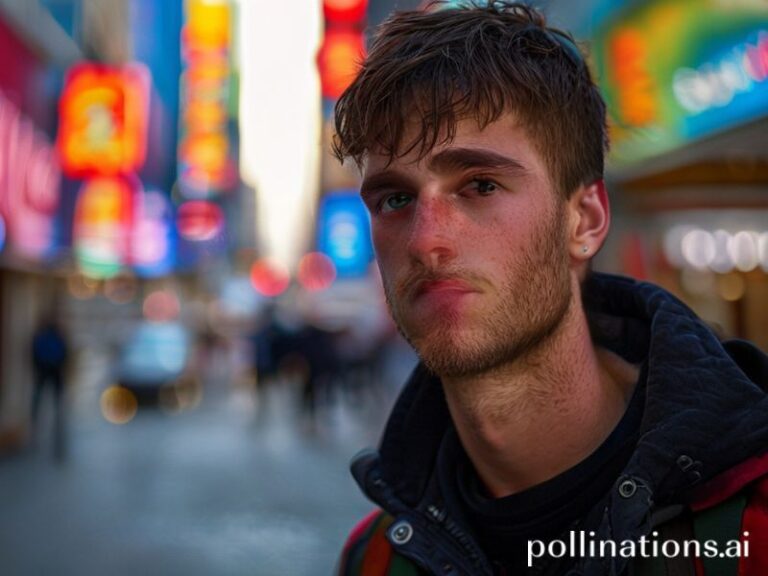Barry George: The World’s Favorite Miscarriage of Justice—and Why Every Nation Has One
Barry George: How One Oddball Became Every Country’s Cautionary Tale
In the great, greasy atlas of miscarried justice, few names are scrawled as indelibly—and as awkwardly—as Barry George. To the British, he’s the unemployed loner who spent eight years in Belmarsh for murdering television presenter Jill Dando before the Court of Appeal discovered the prosecution’s case was held together with spit, prejudice, and a microscopic speck of firearm residue that could have come from anywhere, including the inside of a cereal box. To the rest of the planet, George is a living, breathing reminder that every legal system—from Tokyo’s spotless courtrooms to Lagos’s chaotic tribunals—has a secret trapdoor labeled “weirdos first.”
The story begins in 1999, when Dando was shot on her Fulham doorstep in a killing so cinematic it could have been scripted by a bored Bond writer. Enter Barry George, a man whose hobbies included changing his name (Paul, Steve, Barry Bulsara, Jack the Hat—collect them all), pretending to be in the SAS, and collecting newspaper clippings about female celebrities like a squirrel hoarding acorns of doom. If you were designing a suspect from IKEA flat-pack, George would arrive missing two screws and an alibi.
Cue the global rubbernecking. French tabloids dubbed him “l’étrange Anglais,” German television ran nightly specials on British police procedure, and American true-crime podcasts—still in their larval form—treated the case as proof that across the pond they too could bungle a high-profile homicide. The subtext was universal: every nation has a Barry George-shaped hole in its psyche, a place where the inconveniently eccentric get wedged when the public demands a culprit with theatrical flair.
Eight years later, when the conviction crumbled faster than a cheap croissant, the international takeaway was refreshingly bipartisan: nobody’s immune to lazy stereotyping. Prosecutors leaned on George’s “bizarre delusions” the way Italian cops once leaned on amanda Knox’s yoga routine or Japanese courts leaned on the phrase “confessed while sleep-deprived.” The residue of injustice is always the same color; only the passport stamps change.
Post-acquittal, George became a peripatetic ghost haunting the margins of British media, occasionally resurfacing to sue newspapers for libel—always a lucrative sport in the UK, where the truth is sometimes less profitable than a well-phrased apology. He reportedly pocketed substantial damages, proving that in the modern economy even wrongful imprisonment can be monetized if you’re photogenic enough in a tragic way. Meanwhile, criminology students from São Paulo to Seoul dissect his case as a masterclass in confirmation bias, and Interpol quietly updates its training modules: “Remember, gentlemen, the weird neighbor is not always the killer; sometimes he’s just the weird neighbor.”
The broader significance? Barry George is globalization’s guilty conscience. He demonstrates how every culture manufactures its own folk devils, then exports the cautionary tale via Netflix documentaries and airport paperbacks. He also illustrates the transnational allure of a tidy narrative: lone nut with air rifle takes down national sweetheart. It’s a plot so neat it could fit on a commemorative plate—except the plate keeps cracking under scrutiny.
In the end, George didn’t just lose eight years; he became a sort of negative monument, a statue cast from the bronze of collective embarrassment. Walk past it in London and you see the UK’s criminal justice system caught mid-wince. Fly to Sydney, catch a rerun of the dramatization, and you’ll see Australia nervously checking its own backyard for overlooked loners. The moral, whispered in court corridors from Toronto to Tbilisi, is simple: when the crowd wants a monster, anyone with a stutter, a Star Trek uniform, or an unironic mustache should probably lawyer up.
Barry George walks free today, still odd, occasionally litigious, and forever stamped with the invisible ink of suspicion. Somewhere, in a seminar room lit by fluorescent doom, a future prosecutor is being warned: “Remember the George Principle—if the suspect looks too perfectly guilty, start over. History is watching, and it has a sardonic sense of humor.”







